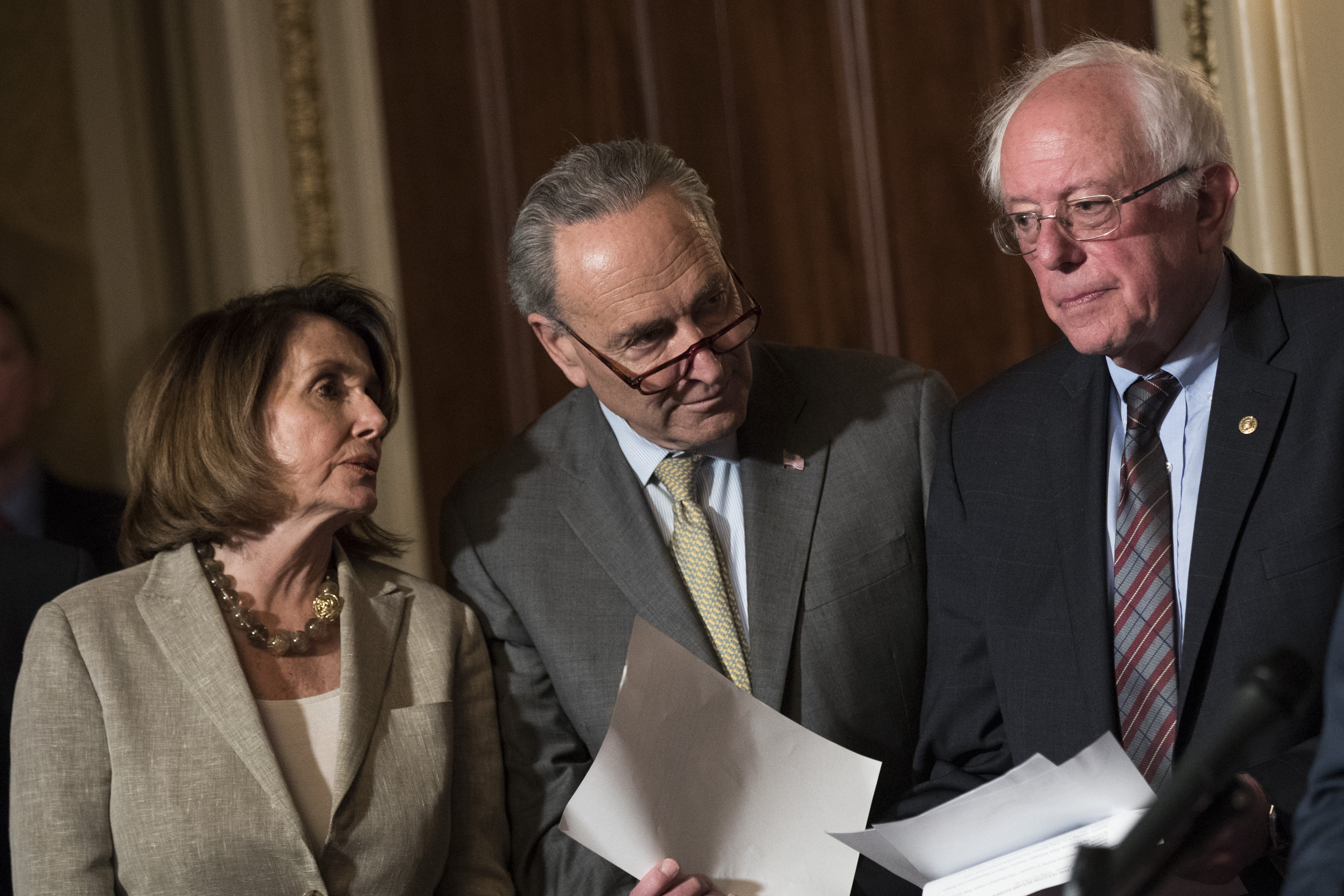Senator Sanders will be introducing a bill today which would create a single-payer health care plan in the United States. This type of socialized health plan has taken many names, including universal health care or socialized medicine, but it all basically means the same thing. Essentially the government will be covering the costs of your health care and will be the party responsible for paying the bill.
This type of legislation isn’t sitting well with all Democrats, and Politico reports the party is fairly split on the idea of pushing it too far:
Bernie Sanders’ single-payer health care plan has won over most other liberal senators, including many weighing 2020 bids.
The rest of the Democratic Party is another matter.
As Sanders prepares to unveil his Medicare for All legislation on Wednesday, most of the party’s congressional leaders and vulnerable Senate incumbents are steering clear. Even as the left celebrates Sanders’ ability to push the Democratic agenda leftward after his primary challenge to Hillary Clinton last year, that success appears to have its limits.
Senate Minority Leader Chuck Schumer told reporters that he would be “looking at all of” the party’s “many good” proposals to expand health care access, but declined to back Sanders. House Minority Leader Nancy Pelosi declared that her priority is shielding Obamacare from a GOP repeal push that’s not yet dead for good.
Connecticut Sen. Chris Murphy, one of the few Democrats subject to 2020 speculation who has not signed on to the Sanders bill, warned against letting the party’s attention slip to “longer-term health care policy” while the future of the Affordable Care Act remains up for debate.
“I think the risk is that we get distracted,” Murphy told reporters. “September’s not done. They can still ram through a repeal bill.”
Obviously Bernie’s bill isn’t going to pass with the GOP controlling both chambers, and President Trump unlikely to sign such a bill if it somehow did pass, but the real story here is the Overton window has moved such that more and more Democrats are feeling comfortable supporting socialized medicine despite the shortcomings in ObamaCare. In fact, it’s arguable that the shortcomings in ObamaCare are precisely what has left the door open for Democrats to push legislation that would finally upend the private insurance industry in favor of a government-run or government-sponsored public insurance plan. Or, as Bernie refers to it, “Medicare for all.”
Moderate Democrats, from fairly purple states, remain skeptical:
Sen. Claire McCaskill said in a brief interview that lawmakers have more work to do to keep health care costs in check “before we would think about expanding that [Medicare] system to everyone.”
Single-payer on a national level would have “a lot of problems,” McCaskill added, although she came out in support of allowing individuals as young as 55 to buy into Medicare.
The cost factor is always going to be the albatross around any plan that expands Medicare or creates more health care entitlements at the federal level. How are you going to pay for it? That question is rarely answered well by proponents of universal care, and that is why some Democrats won’t be able to swallow this agenda for years to come.
When asked about whether support for single-payer health care should be part of the Democratic standard platform, Nancy Pelosi says not yet:
Pelosi (D-Calif.) declined to endorse “Medicare for All” legislation backed by Sen. Bernie Sanders (I-Vt.) and instead called on Democrats to release a wide range of proposals to fix and improve President Barack Obama’s signature health-care law. Her position on health care is the latest evidence that Democrats in the House are willing to ignore pressure from liberal factions aiming to drive the party further to the left.
“I don’t think it’s a litmus test,” Pelosi said in an interview. “What we want is to have as many people as possible, everybody, covered, and I think that’s something that we all embrace.”
Defending ObamaCare is about as far as many Democrats are willing to go right now considering that Donald Trump just won the White House by promising to repeal it. Any further push for wider government involvement in health care could risk creating a serious backlash which might dash any hopes Democrats have for returning to power in 2018.
Donate Now to Support Election Central
- Help defend independent journalism
- Directly support this website and our efforts
